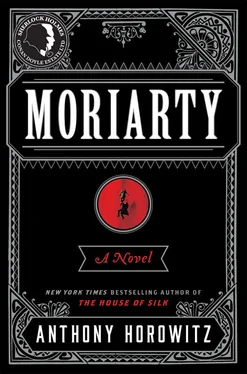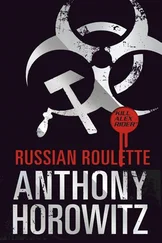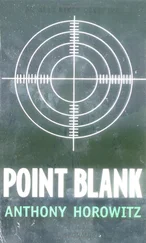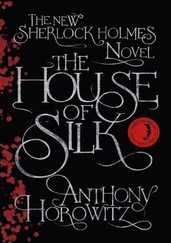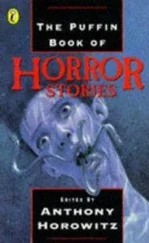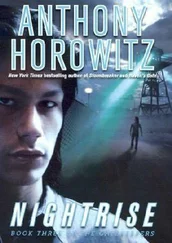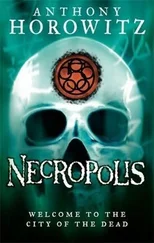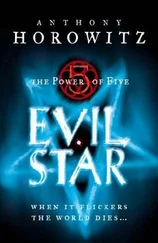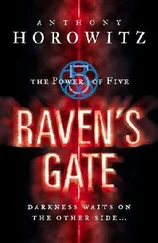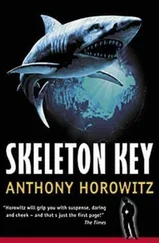‘Exactly. Professor Moriarty—the first two words of the communication. And, using that information, many more of the letters contained in the code are revealed.
PROFESSOR MORIARTY—M E E T M E A T T 12 E 13 A F E R O Y A 14 14 O 15 16 O 15 O 15 E O 13 14 O 13 17 M A Y T 12 E T 18 E 14 F T 12 18 E A R A R E 16 T 19 14 I P
‘“Professor Moriarty, meet me at…”’ I began. My voice trailed off. ‘There is not very much more after that,’ I said.
‘I do not agree. “Meet me at” is followed by “T 12 E”. What else can that be but “the”? You will see that the same formulation is repeated in the third line after MAY. And that provides us with another letter. 12 is H! And looking at the second line, you will see the letters ROYA all together. Again, the fifth letter is obvious. It can only be one word.
‘Royal?’
‘Precisely. Meet me at the something Royal…’
‘What can that be?’
‘It can only be the Café Royal!’ Jones explained. I looked blank so he continued. ‘It is a famous restaurant in the heart of London. Like yourself, Clarence Devereux might not have heard of it but it would be easy enough to find.’
‘And what of the word that follows?’ I asked.
‘That is not so difficult. We now have the L. So—L O 15 16 O 15. The repeated 15 gives us another clue if we need it.’
‘London,’ I said. ‘The Café Royal, London. It can be nothing else.’
‘I agree. That is the meeting place. And now let us see what comes next.’
ONE O C L O C 17 MAY THE T 18 E L F T H
‘It is perfectly obvious,’ I cried. ‘One o’clock, May the twelfth!’
‘That is three days from now. You see how quickly the code unravels itself. But let us proceed to the end.’
W E A R A R E 16 T 19 L I P
‘We are…’ I stopped, confused.
‘It is not “we are”. It is “wear a”. From what you told me, it is almost certain that Moriarty and Clarence Devereux have never seen each other face to face. Both pride themselves on the fact that nobody knows their appearance. So Moriarty is being instructed to wear something that will identify him. That something is contained in the last eight letters.’
R E 16 T 19 L I P
I said nothing and with a smile, Jones finished his work for me. ‘It can only be a red tulip,’ he said, ‘a buttonhole. And there you have it, Chase…’
PROFESSOR MORIARTY. MEET ME AT THE CAFÉ ROYAL, LONDON. ONE O’CLOCK, MAY THE TWELFTH. WEAR A RED TULIP.
‘We were lucky. Professor Moriarty was the key to the entire thing. Had the sender omitted the salutation, we would have been stuck.’
‘But you are remarkable, Inspector Jones! I cannot express my admiration strongly enough. I wouldn’t have known where to begin.’
‘Pshaw. It was not so very difficult. I’m sure Mr Holmes would have achieved the same in half the time.’
‘This is exactly what I had been hoping for,’ I said. ‘It’s the vindication of my long journey to Europe—and the costs involved, for that matter. Clarence Devereux is coming to this place, the Café Royal, three days from now. He will approach a man wearing a red tulip and in doing so he’ll identify himself.’
‘If he knows that Moriarty is dead, he will not come.’
‘That’s true.’ I fell silent, then thought again. ‘But suppose you were to issue a statement to the effect that you believe Moriarty to be alive? After all, you were sent to enquire into what had taken place at the Reichenbach Falls. You could easily say that you had found fresh evidence that Moriarty had not been involved in the attack.’
‘And the body in the crypt?’
I paused. ‘Couldn’t we pretend that it was somebody else?’ At that moment, our hostess approached the table to remove the plates. ‘Mrs Steiler,’ I said. ‘Can you tell me the name of the chef whose mother was ill?’
‘Franz Hirzel.’ She looked at my soup, barely touched. ‘Not good?’
‘It was excellent,’ I replied. I waited until she had gone back into the kitchen. ‘There’s the name for you, if you need one. The dead man can be our wandering chef. He was on his way back, he got drunk and fell into the falls. It’s just a coincidence that the two incidents occurred at about the same time. Tell the papers that Moriarty is still alive and let Devereux walk into a trap.’ Jones looked down with his lips tightly pursed, so I went on. ‘I haven’t known you very long and yet I can see you don’t like the idea of doing something dishonest. I feel the same. But trust me when I say that you have no idea what sort of disease has arrived in your city. You owe it to your fellow citizens to do everything you can to purge it. Believe me, Inspector. With Moriarty gone, this meeting is our only hope. We have to be there. We have to see what comes of it.’
Mrs Steiler returned with the main course, two plates of roast lamb. I picked up my knife and fork, this time determined to eat.
Jones nodded slowly. ‘You’re right,’ he said. ‘I will send a telegram to Scotland Yard and we can leave tomorrow. If the trains are kind to us, we will just arrive in time.’
I raised my glass. ‘To the capture of Clarence Devereux,’ I said. ‘And—if I may—to the two of us, Scotland Yard and Pinkerton’s, working together.’
We drank and in this way our association began. And yet how bitter that wine might have tasted and how reluctant we might have been to continue if we had only known what lay ahead.
Not many Americans have the opportunity to travel across Europe and yet I cannot describe very much of what I saw. For much of the time I had my face pressed against the glass, gazing at the little farmhouses dotted over the hills, the rushing streams, the valleys with their early summer flowers, and yet I was ill at ease, unable to concentrate on what I saw. The train journey was a very slow business and, in our second-class carriage, an uncomfortable one. My constant fear was that we would arrive too late for, as Jones had told me, we had a distance of some five hundred miles to cover with four trains and the steam packet from Calais to London Bridge. We couldn’t afford to miss even one of our connections. From Meiringen we headed west, crossing Lake Brienz at Interlaken and then continuing up to Bern. It was from here that Jones sent the cable that we’d devised together, stating that Professor Moriarty had miraculously escaped from the catastrophe of the Reichenbach Falls and was believed to have returned to England. The post office was some distance from the station and almost cost us our next train as Jones was unable to walk for any great length of time. He was quite pale and clearly in discomfort as we took our seats in our carriage.
We sat in silence for the first hour or two, each of us absorbed in our own thoughts. However, as we approached the French border near Moutier, we became more talkative. I told Jones something of the history of the Pinkertons—he had a keen interest in the methods of investigation practised by foreign law enforcers, dull though they were compared to his own—and I gave him a detailed account of their involvement in the Burlington and Quincy Railroad strike which had taken place a few years before. The agency had been accused of inciting riots and even murdering strikers, although I assured him that their role had only been to protect property and to keep the peace. That was their story, anyway.
After that, Jones turned away, immersing himself in a printed pamphlet which he had brought with him and which turned out to be a monograph by Sherlock Holmes no less, this one on the subject of ash. Apparently—or so Jones assured me—Holmes was able to differentiate between one hundred and forty different types of ash, from cigars, cigarettes and pipes, although he himself had only mastered ninety of them. To humour him, I made my way to the salon dining room and took a pinch of five different samples from the mystified passengers. Jones was extremely grateful and spent the next hour examining them minutely with a magnifying glass he had extracted from his travelling bag.
Читать дальше
